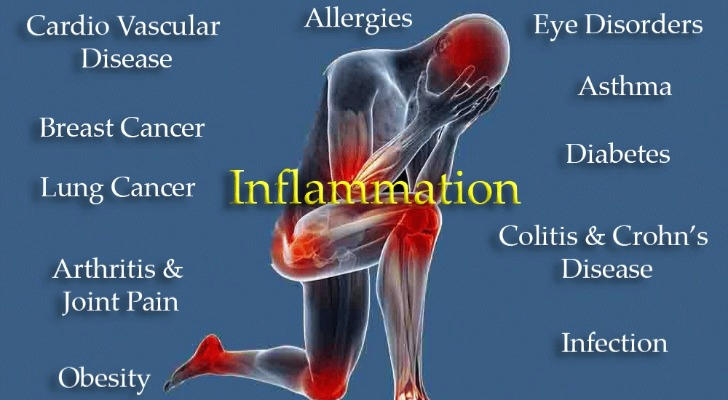Experts suggest how to reduce inflammation in the body with simple lifestyle changes
Feeling constantly tired, dealing with recurring skin rashes, or experiencing joint pain? These could be signs of inflammation in your body. While inflammation is a natural response and sometimes beneficial, chronic inflammation can lead to serious health conditions like rheumatoid arthritis, as noted by Maya Feller, RD, founder and chief nutritionist at Maya Feller Nutrition.

Understanding Inflammation: A Natural Response
Inflammation is part of your body's healing process, such as when you sprain your ankle or cut your finger. However, persistent inflammation can signal underlying health issues. Dr. Valerie Gustave, a gastroenterologist at Lenox Hill Hospital and NYU Langone Medical Center, explains that chronic inflammation can lead to autoimmune diseases.
Expert-Backed Strategies to Reduce Inflammation
Concerned about your inflammation levels? Here are some straightforward methods endorsed by experts to help you reduce inflammation:
1.Moderate Alcohol Intake
Alcohol can trigger an inflammatory response. Consider reducing your consumption or abstaining entirely. For example, if you typically have two glasses of wine each night, try cutting back to one or switching to a non-alcoholic alternative.
2.Quit Smoking
Tobacco use, in any form, increases inflammation risks. Utilize nicotine replacement therapies or smoking cessation apps to track your progress and receive support.
3.Prioritize Sleep
Quality sleep is crucial for immune function. Establish a consistent sleep schedule and ensure your sleep environment is conducive to rest. This might include using blackout curtains and a supportive mattress.
4.Manage Stress
Chronic stress can lead to increased inflammation. Incorporate stress-reduction techniques such as daily meditation or weekly yoga sessions into your routine.
5.Engage in Regular Physical Activity
Exercise can help lower inflammation levels. Find an activity you enjoy and aim for at least 30 minutes most days of the week, such as brisk walking or swimming.
6.Limit Processed Foods
Processed foods and added sugars can exacerbate inflammation. Opt for fresh, unprocessed foods and read food labels carefully to avoid products with excessive additives.
7.Eat a Rainbow of Fruits and Vegetables
A diverse diet rich in colorful fruits and vegetables provides anti-inflammatory nutrients. Aim to include a variety of plant-based foods in your meals each day.

Real-Life Example: The Transformation of Ava's Lifestyle
Ava, a 35-year-old marketing executive, was experiencing chronic fatigue and occasional joint pain. After consulting with her doctor, she decided to make the following changes:
• She replaced her nightly glass of wine with herbal tea and reduced her alcohol intake to special occasions only.
• Ava used a nicotine patch and attended smoking cessation support group meetings, successfully quitting smoking within three months.
• She established a bedtime routine that included reading and light stretching, ensuring she got at least 7 hours of sleep each night.
• Ava started practicing mindfulness meditation for 20 minutes each morning and joined a local yoga studio for weekly classes.
• She began a walking program, gradually increasing her pace and distance, and now walks 5 kilometers every morning.
• Ava made a conscious effort to cook at home more often, using fresh ingredients and avoiding processed foods.
• She tracked her diet and physical activity using a health app, which helped her stay accountable and motivated.
Results and Expert Commentary
After six months, Ava reported a significant improvement in her energy levels and a reduction in joint pain. Her follow-up blood tests showed a decrease in her CRP levels, indicating reduced inflammation. Dr. Micaela Bayard, a rheumatologist at Mount Sinai, commends Ava's comprehensive approach to lifestyle changes, emphasizing the importance of a multifaceted strategy to manage inflammation.
By incorporating these expert-backed strategies and drawing from real-life examples, individuals can take control of their health and reduce inflammation effectively.

About the Experts:
Dr. Valerie Gustave is a gastroenterologist at Lenox Hill Hospital and NYU Langone Medical Center.
Dr. Micaela Bayard is a rheumatologist at Mount Sinai.
Maya Feller, RD, is the founder and chief nutritionist at Maya Feller Nutrition and author of "Eat What You Love: A Mindful Approach to Raising Children with Healthy Eating Habits for Life."
